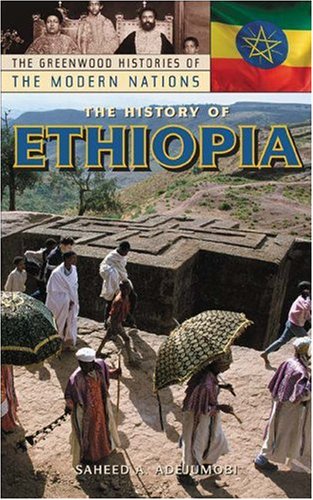

Most ebook files are in PDF format, so you can easily read them using various software such as Foxit Reader or directly on the Google Chrome browser.
Some ebook files are released by publishers in other formats such as .awz, .mobi, .epub, .fb2, etc. You may need to install specific software to read these formats on mobile/PC, such as Calibre.
Please read the tutorial at this link: https://ebookbell.com/faq
We offer FREE conversion to the popular formats you request; however, this may take some time. Therefore, right after payment, please email us, and we will try to provide the service as quickly as possible.
For some exceptional file formats or broken links (if any), please refrain from opening any disputes. Instead, email us first, and we will try to assist within a maximum of 6 hours.
EbookBell Team

4.3
38 reviewsThis engaging and informative historical narrative provides an excellent introduction to the history of Ethiopia from the classical era through the modern age. The acute historical analysis contained in this volume allows readers to critically interrogate shifting global power configurations from the late nineteenth century to the twentieth century, and the related implications in Ethiopia and the Horn of Africa region. Adejumobi identifies a second wave of globalization, beginning in the nineteenth century, which laid the foundation for a highly textured Ethiopian Afromodern twentieth century. The book explores Ethiopia's efforts at charting an independent course in the face of imperialism, World War II, the Cold War and international economic reforms with a focus on the gap between the state's modernization reforms and the citizenry's aspirations of modernity. The book focuses on Ethiopians' efforts to balance challenges related to social, political and economic reforms with a renaissance in the arts, theater, Orthodox Coptic Christianity, Islam and ancient ethnic identities.
The History of Ethiopia paints a vivid picture of a dynamic and compelling country and region for students, scholars, and general readers seeking to grasp twenty-first century global relations. The work also provides a timeline of events in Ethiopian history, brief biographies of key figures, and a bibliographic essay.